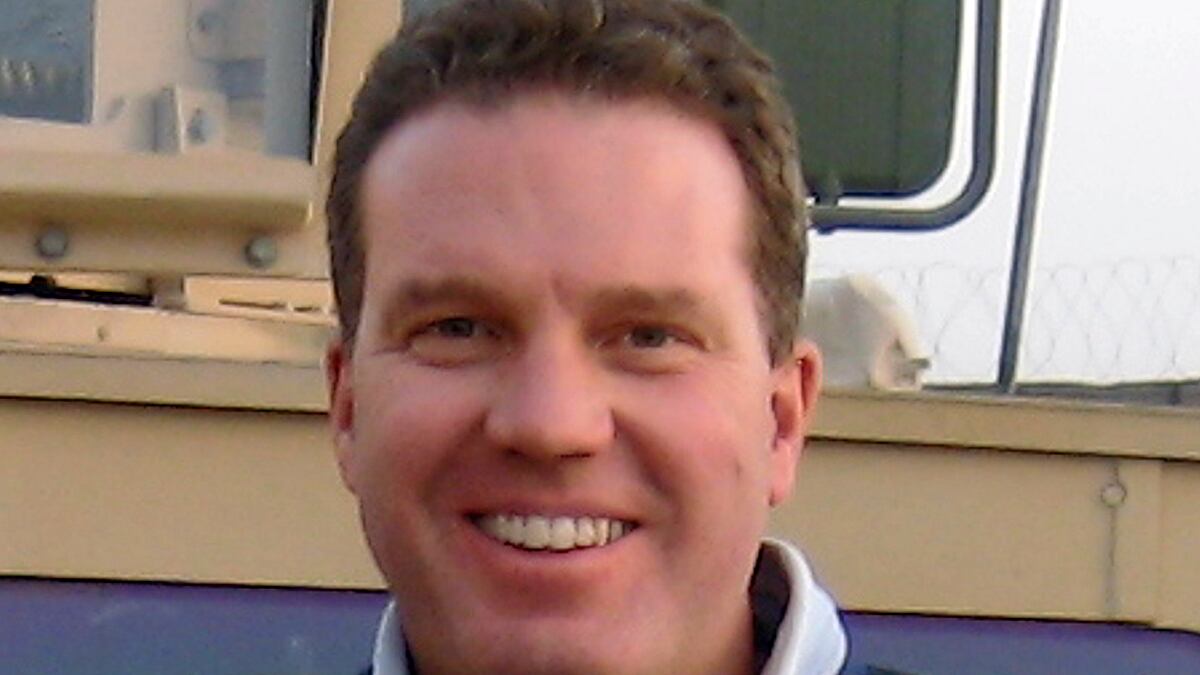One week after the Pope’s butler was arrested for allegedly leaking private Vatican documents to the press, Fox News’s Rome correspondent, Greg Burke, got what he refers to as “a curious call” from the Vatican. Burke was in the United States at the time, celebrating his father’s 90th birthday, and had turned off his Italian cellphone. When he turned it back on, he had several messages from the Holy See. “The Pope’s chief of staff would like to see you,” said one.
“I knew it was something important,” Burke, 52, told The Daily Beast. “I figured it wasn’t to talk about the best restaurants in Rome.”
When Burke returned to Rome, the Vatican’s deputy secretary of state, Archbishop Angelo Becciu, asked Burke to become the Holy See’s senior communications adviser, a job created especially for him in an effort to help guide the institution out of an increasingly difficult public-relations quagmire. “I waited 24 hours and then said no,” Burke said. “It seemed too much of a mess and too big for me and way out of my comfort zone.” Burke then left for Spain to cover that country’s economic crisis, putting the idea behind him.
ADVERTISEMENT
The Vatican called again. “I said no again,” Burke remembers, “but then after a few days I thought maybe I should just man up and step up to the plate.”
A native of St. Louis, Burke is a practicing Catholic and member of Opus Dei—but by no means a Vatican apologist. He moved to Rome in 1988 as a correspondent for the National Catholic Register, a job that eventually ended when the newspaper ran out of money. He then moved to Time magazine as its Rome bureau chief before eventually accepting an offer to be Fox News’s European and Middle East on-air correspondent. In his previous jobs, he covered the illness and death of Pope John Paul II, the election of Pope Benedict XVI, the pedophile scandal, the VatiLeaks saga, and the crackdown on American nuns. “A scandal is a scandal, and I’ve reported on them all,” he says. “It all had to be told, as much as things are true, it’s good they’ve come out.”
He believes he was chosen for the Vatican job for a combination of factors. “Being American certainly plays into it. If you want conspiracy theory, it’s the American Fox News and Opus Dei connection,” he joked. “But if you want the experience factors, I have a solid career in journalism, and I do know essentially what journalists want. I am a faithful Catholic, and I can bring a certain level of American practicality to the job.”

Hiring an American to interface between the church hierarchy and the press is a giant step into the brave new world of transparency for the Holy See. Burke says he sees the job as a role similar to that of the White House director of communications, so he knows it won’t be easy. He won’t be the official spokesperson—that job will stay with Father Federico Lombardi—but he will have authority to speak to reporters on background (meaning the press can report the general sentiment of what he says without using direct quotes), a development that may open up roads that have previously been blocked.
One of the most challenging responsibilities of the new job will be to reach out to the press and get them back “on message,” Burke says. The recent scandals have overshadowed much of the positive work the church has done, and Burke says it’s time for an effort to refocus attention to some of the more positive aspects of the Catholic Church. Since he is a respected journalist among the often-cynical Rome press corps, he may be able to make an impact—at least on the surface. When the Vatican takes issue with unfair reporting, for example, he’ll be able to call up reporters and speak to them as a peer, in a way the church has never been able to do before.
“Anything that can show an openness and willingness to meet the press is a step in the right direction,” he says. “But more than an attempt to humanize it, I would say it’s an attempt to modernize it. It’s going to be a slow process. The Vatican is not going to change in a day.”
Because no one has ever had a job like this before, Burke says he will have to find his way through a system few outside the clerical set have ever trespassed. But he’s realistic about what lies ahead. “I am going to have no power,” he says, “but I certainly will be at the table with people who do have power. Will I make a point forcefully enough to get my point across? I really have no idea.”






